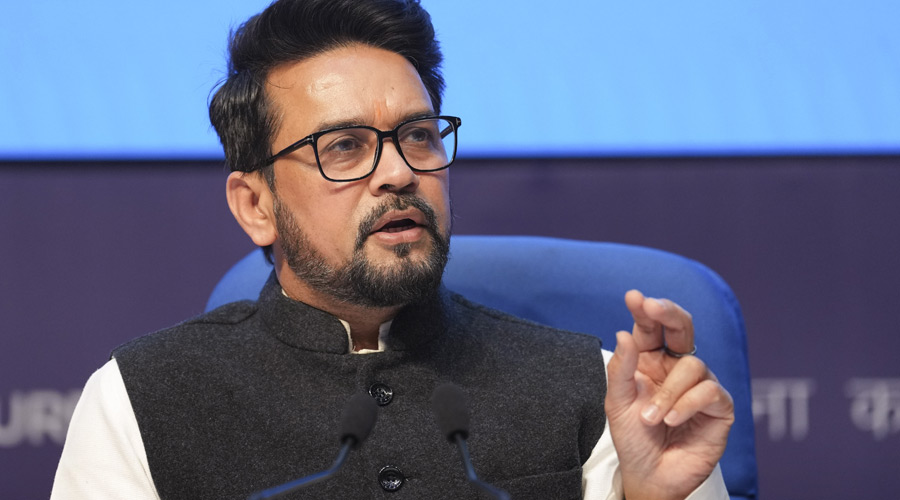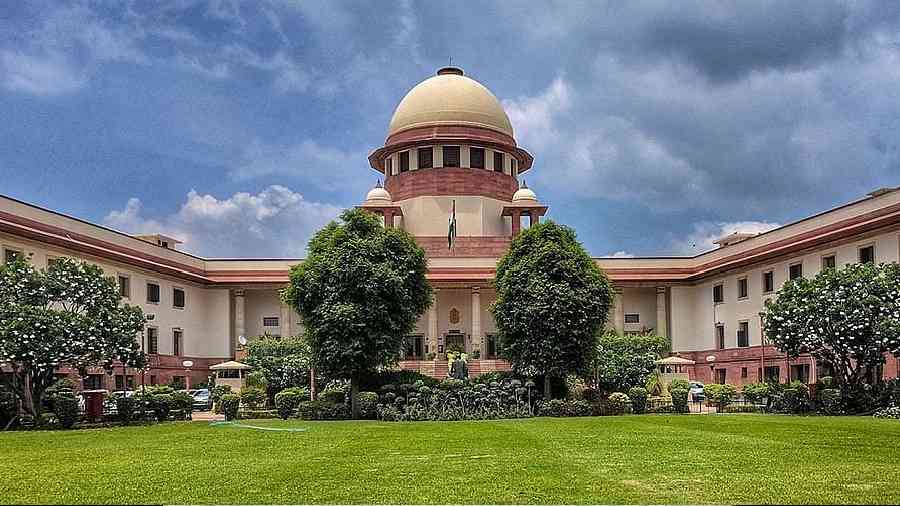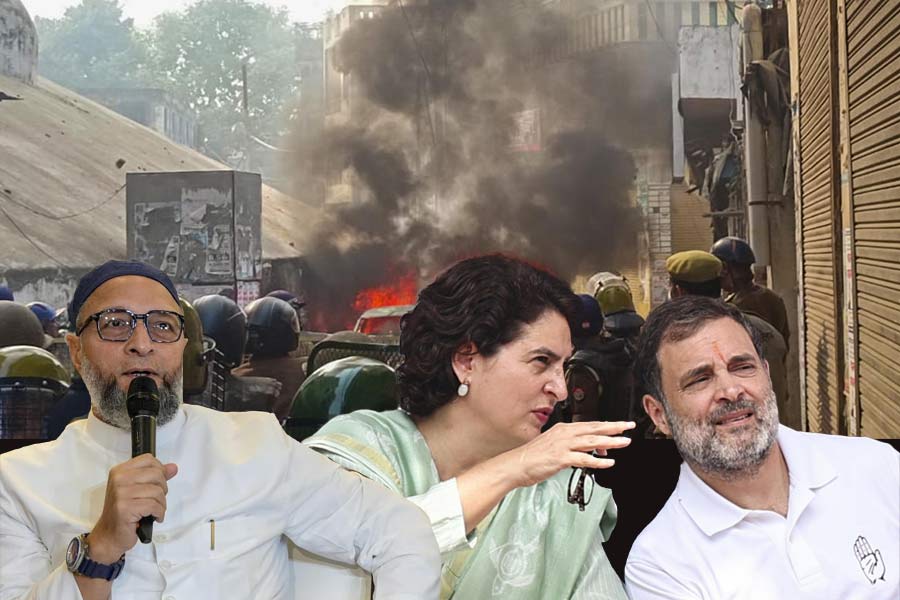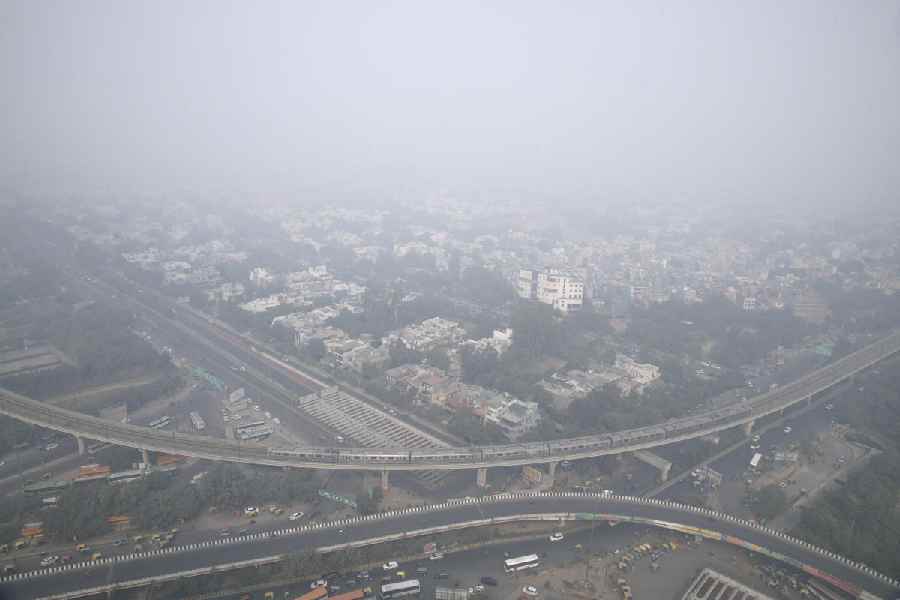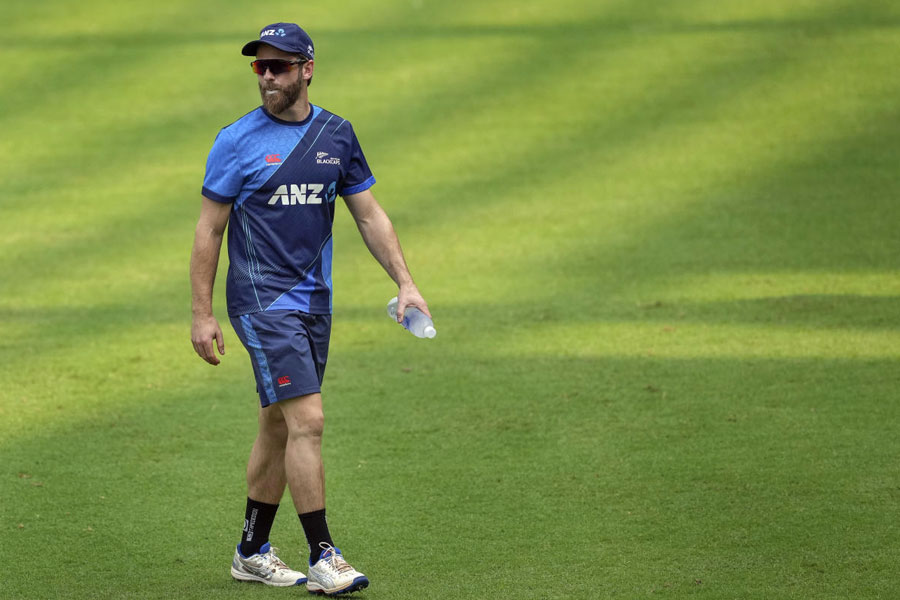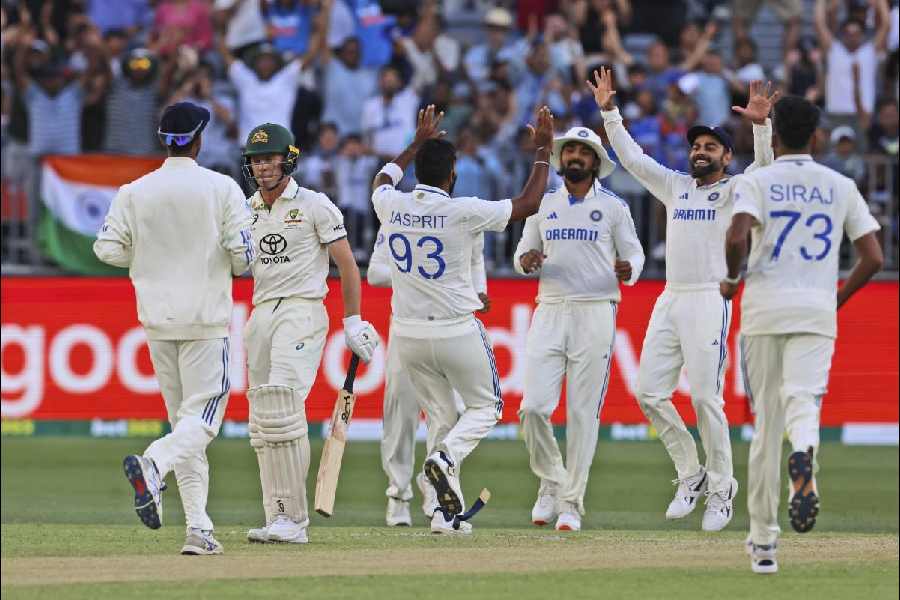The Supreme Court on Monday issued a notice to Delhi police on a plea for the registration of FIRs against Union minister Anurag Thakur and BJP parliamentarian Parvesh Verma for their alleged hate speeches against anti-citizenship-act protesters in 2020, when calls to "shoot the traitors" were sounded.
The bench of Justices K.M. Joseph and B.V. Nagarathna was hearing a joint plea from CPM leaders Brinda Karat and K.M. Tiwari, who had challenged the concurrent findings of a trial court and Delhi High Court that prior sanction was necessary for prosecuting the two public servants.
The apex court orally observed that prima facie, the trial court seemed to have taken an “incorrect” view since sanction was not actually necessary as the case involved offences not under the Prevention of Corruption Act but under the Indian Penal Code.
The Delhi police, who report to the Centre, have to respond within three weeks.
Thakur, Verma and BJP politician Kapil Mishra had been accused of delivering hate speeches against the Shaheen Bagh anti-CAA protesters in the run-up to the post-Assembly-election Delhi riots of February 2020 that killed 53 people.
Thakur was accused of egging on a crowd by declaring “desh ke gaddaron ko”, following which the audience responded with “goli maro salon ko” (the full cry translates as “shoot the traitors to the country)”, at an election rally in Rithala, Rohini, on January 27, 2020. Verma is said to have made hate speeches on January 28 against the citizenship protesters.
Justice Joseph said sarcastically that the reference to “goli maro” seemed not to have come in the context of prescribing medicines, playing on the two meanings of “goli” in Hindi — pills and bullets.
The CPM leaders have sought the registration of FIRs under penal code sections 153A (provoking enmity between different groups of people on grounds of religion, etc); 153B (imputation/ assertions prejudicial to national security) and 295A (deliberate or malicious act intended to outrage religious feelings). Together, the three offences entail a maximum punishment of five years on conviction.
Senior advocate Siddharth Agarwal, appearing for the CPM leaders, told the bench that the “gaddars” whose shooting had been prescribed were protesters at Delhi’s Shaheen Bagh — a large, three-month gathering led by Muslim women that members of other communities had joined too.
“It is ex facie calling upon people to indulge in violence of the most heinous kind,” Agarwal said.
Justice Joseph said no religious connotations could be attached to the call as the protesters belonged to different communities and the “protesters are secular”.
Agarwal argued that the protesters may have been secular but Thakur’s alleged exhortation came in connection with a particular religious segment.
He underlined that the issue was about religious discrimination — the new citizen regime sought to exclude Muslims while facilitating fast-track citizenship for asylum seekers from other communities from neighbouring countries.
“The basis of somebody believing CAA is not right was on the ground of religion. Though the protest group is secular, the underlying context is religious segregation,” Agarwal said.
He said that when someone says that those who oppose the CAA are “traitors”, the conditions required for filing an FIR under IPC 153A arise immediately.
Even if the police status report says that no one was killed or took up arms on account of the alleged instigation, still an offence was committed and an FIR ought to be registered, he argued.
Agarwal added that a few days after the incident, a youth had indeed fired at anti-CAA protesters in Delhi.
“We are three years down after the instigation, but no FIR has been lodged,” he said.
Agarwal recalled that the Election Commission had, after learning of Thakur’s alleged comments and a media interview in which Verma purportedly justified them, barred the duo temporarily from campaigning.
The petitioners highlighted that several apex court judgments — in the Tehseen Poonwala, Shakti Vahini and other cases — had issued directives for the registration of suo motu FIRs against hate speeches.
When the riots broke out in February 2020, a Delhi High Court bench had cited the alleged hate speeches to ask the police why no FIRs had been registered. It directed the force to watch videos of the speeches and report back to say what decision had been taken.
Eventually, no FIR was lodged.

